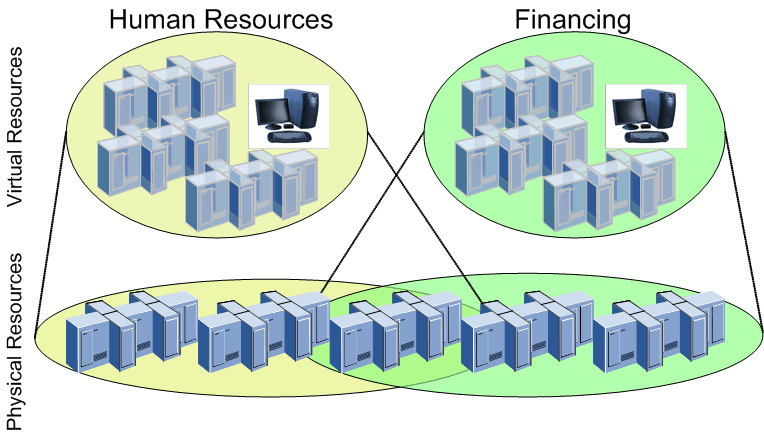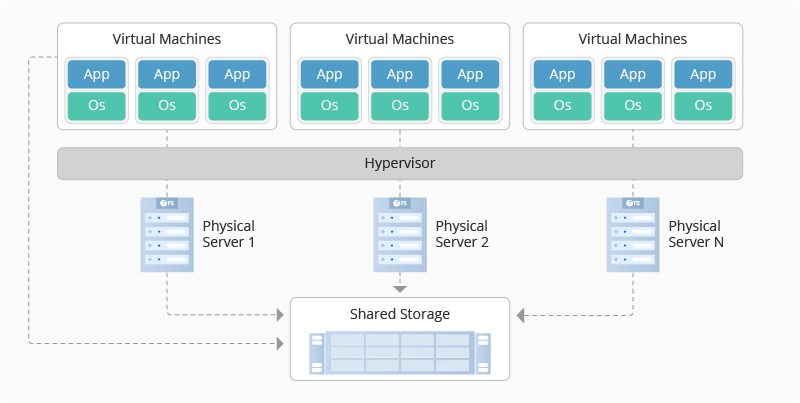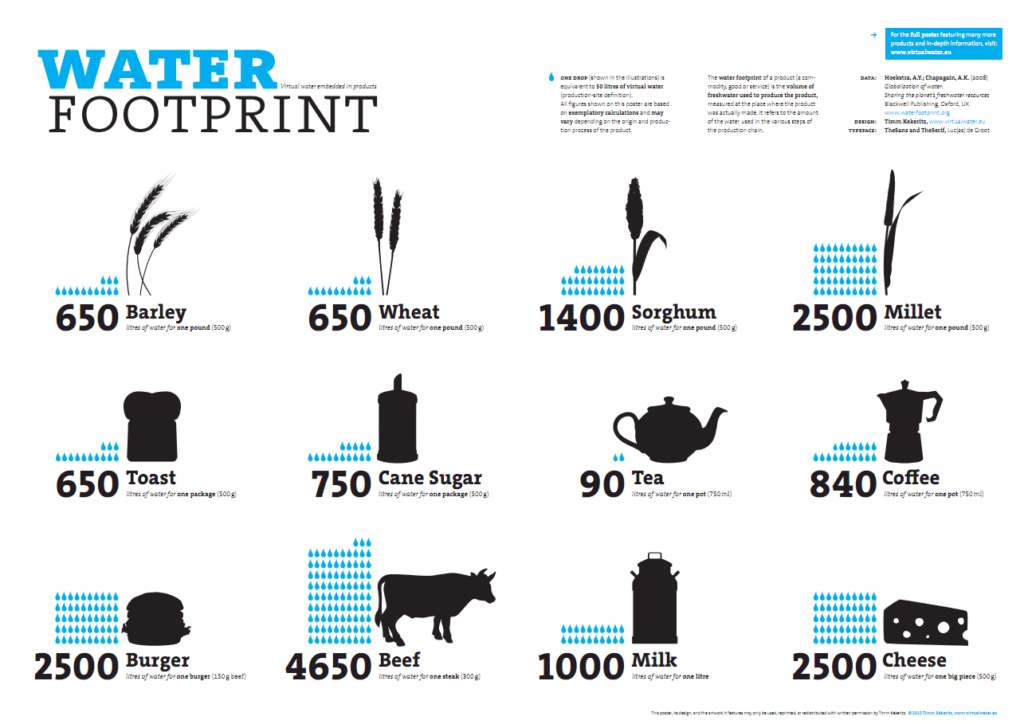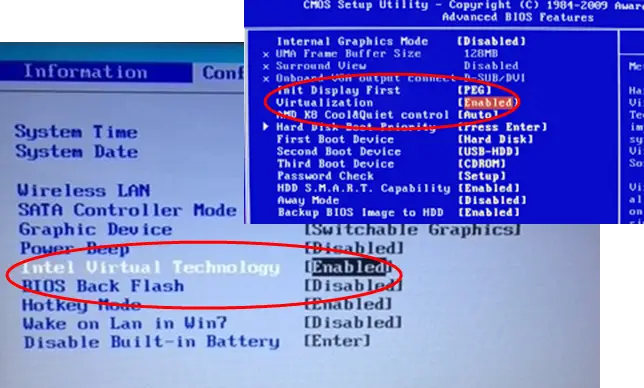As businesses continue to expand, the need for efficient data management becomes increasingly paramount. One solution that has gained popularity in recent years is that of the virtual data centre. But what exactly is a virtual data centre, and how can it benefit your organization?
At its most basic level, a virtual data centre is a cloud-based infrastructure that offers companies a versatile and scalable platform for data storage, management, and analysis. Unlike traditional data centres, which are typically housed on-premises and require significant investments in hardware and maintenance, virtual data centres are hosted remotely and managed by third-party providers. This means that businesses can access the computing power and storage capacity they need, without having to worry about managing the physical infrastructure themselves. In this article, we’ll explore the ins and outs of virtual data centres, and how they can help businesses of all sizes to streamline their data management processes and improve their overall efficiency.
A virtual data centre is a cloud-based computing environment that allows users to access data, applications and other services from a remote server. It is a secure, cost-effective way to store and manage data without the need for physical hardware. Virtual data centres provide a wide range of benefits, including scalability, redundancy, flexibility, and cost savings.

What is a Virtual Data Centre?
A virtual data centre is a virtualized environment that enables a business to store and manage large amounts of data. It is typically used to store and manage large amounts of data in a secure, reliable and efficient manner. Virtual data centres are designed to meet the needs of organizations of all sizes and can be used for a variety of purposes, such as data storage, disaster recovery, and cloud computing.
Advantages of Virtual Data Centres
A virtual data centre offers organizations many advantages over traditional data centre solutions. For instance, virtual data centres are more cost-effective than physical data centres, as they require fewer resources to manage and maintain. In addition, virtual data centres are more secure, as they can be easily backed up and restored in the event of data loss or system failure. Furthermore, virtual data centres are more flexible, as they can be scaled up or down according to an organization’s changing needs.
Another advantage of virtual data centres is that they can be deployed quickly and easily. This means that organizations can get up and running quickly, without needing to invest in costly hardware and software. In addition, virtual data centres are highly reliable and can be accessed from anywhere, making them ideal for remote working. Finally, virtual data centres are more energy efficient than traditional data centres, as they require less power and cooling.
How Does a Virtual Data Centre Work?
A virtual data centre is essentially a virtualized environment that enables a business to store and manage large amounts of data. Virtual data centres are typically built on a cloud-based platform, such as Amazon Web Services or Microsoft Azure. A virtual data centre typically consists of computing resources, such as servers, storage, networking, and security.
The virtual data centre architecture is designed to be highly scalable and flexible, allowing organizations to quickly add or remove resources as needed. This allows organizations to quickly and easily scale their data centres to meet their changing needs. The virtual data centre also provides a secure environment, as it can be easily backed up and restored in the event of data loss or system failure.
In addition, virtual data centres can be easily managed and monitored, allowing organizations to keep track of their data centre performance and usage. Furthermore, virtual data centres can be accessed from anywhere, making them ideal for remote working. Finally, virtual data centres are more energy efficient than traditional data centres, as they require less power and cooling.
Frequently Asked Questions
A virtual data centre is a type of data centre that offers a cloud-based, virtualised environment for computing resources such as servers, storage and networking. It allows businesses to access cloud-based solutions quickly and easily, without having to invest in physical infrastructure.
What is a virtual data centre?
A virtual data centre (VDC) is a type of data centre that provides an on-demand, cloud-based, virtualised environment for computing resources such as servers, storage and networking. It is designed to enable businesses to quickly and easily access cloud-based solutions without having to invest in physical infrastructure. With a VDC, businesses can benefit from the scalability and cost savings of the cloud, while still having the flexibility to use existing IT infrastructure.
A VDC can be used to deploy resources such as virtual machines, databases, storage solutions and applications. It can also be used to manage and monitor the performance of these resources. VDCs are typically hosted on a public cloud platform such as Amazon Web Services, Microsoft Azure or Google Cloud Platform.
What are the benefits of a virtual data centre?
The main benefit of a virtual data centre is that it enables businesses to quickly and easily access cloud-based solutions without having to invest in physical infrastructure. This allows businesses to take advantage of the scalability, flexibility and cost savings inherent in the cloud. Additionally, VDCs are typically hosted on a public cloud platform, which means that businesses can benefit from the redundancy, availability and security features of these platforms.
Another benefit of a VDC is that it can be used to deploy and manage a variety of resources such as virtual machines, databases, storage solutions and applications. This makes it easy for businesses to quickly deploy and scale their IT infrastructure as their needs evolve. Additionally, VDCs can be used to monitor and manage the performance of these resources, enabling businesses to optimise their IT infrastructure.
How secure is a virtual data centre?
A virtual data centre is generally considered to be very secure. This is because VDCs are typically hosted on public cloud platforms such as Amazon Web Services, Microsoft Azure or Google Cloud Platform, which are designed with security in mind. These platforms offer a variety of features such as encryption, access control and identity management to ensure that data is kept secure.
Additionally, businesses can further enhance the security of their VDCs by taking advantage of the various security services offered by the hosting platform. For example, businesses can use intrusion detection and prevention systems to detect and block malicious traffic, or they can use firewalls to control access to their VDCs.
What is the cost of a virtual data centre?
The cost of a virtual data centre depends on several factors, such as the hosting platform, the type and amount of resources needed, and the length of time the VDC will be used. In general, VDCs are cost-effective solutions due to their scalability and flexibility. Additionally, many hosting providers offer discounts for long-term use of their VDCs, which can help businesses save money in the long run.
In addition to the cost of the VDC itself, businesses also need to factor in the cost of the resources that will be used in the VDC. These costs can include the cost of virtual machines, databases, storage solutions and applications. Additionally, businesses need to consider the cost of security services and other management services that may be required.
Can a virtual data centre be used for private cloud deployments?
Yes, a virtual data centre can be used for private cloud deployments. Private cloud deployments involve the use of a VDC to deploy resources such as virtual machines, databases, storage solutions and applications in an isolated environment. This can be beneficial for businesses that need to keep certain resources secure and confidential, or for businesses that have specific regulatory or compliance requirements.
Private cloud deployments require additional investment in order to ensure that the environment is secure and compliant. Businesses need to invest in additional hardware and software, as well as security services and other management services. Additionally, businesses need to ensure that their private cloud is properly monitored and managed to ensure that it is secure and compliant.

In conclusion, a virtual data centre is a modern solution that provides businesses with a flexible and scalable infrastructure for their data storage needs. It allows companies to avoid the high costs associated with building and maintaining a physical data centre while still maintaining control over their data. With a virtual data centre, businesses can easily scale their storage resources up or down as required, allowing them to respond quickly to changing business needs.
In today’s digital age, where data is a valuable asset, a virtual data centre is becoming an increasingly popular option for businesses of all sizes. It provides a secure and reliable platform for storing and managing data, while also offering the flexibility and scalability that modern businesses require. By investing in a virtual data centre, companies can ensure that their data is safe, easily accessible, and always available, helping them to stay competitive in today’s fast-paced business environment.



